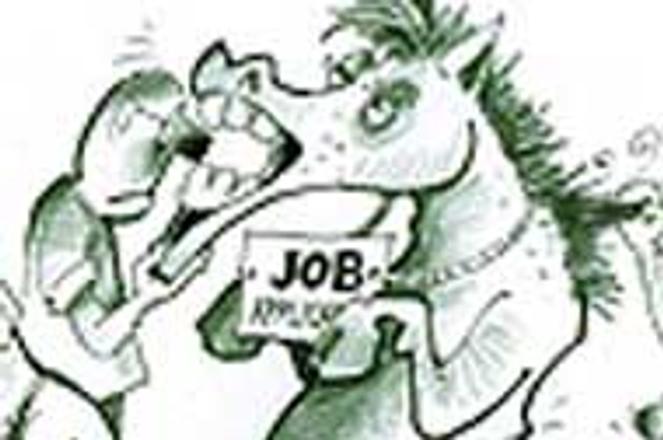Slovakia's workforce must expect to be grilled by employers in job interviews, since Slovak law says little about what questions are unfair, or of what discrimination consists.illustration: Igor Lyskov
The sense that Slovak workers are fighting a losing battle against international capital has increased markedly this year.
It has become a mantra of the current government that attracting FDI is essential to the country's economic well-being.
But in its attempt to attract that capital, the government is in danger of abandoning its workers to the remorseless logic of the free market - let us do what we want, companies say, or we will go elsewhere.
A proposed amendment to the labour code is a case in point. The government wants to require companies to get approval for mass layoffs (more than 20 employees over three months), and to stop companies from using temporary contracts to get out of their legal obligations to full-time employees.
Some foreign companies complain that this amendment will prevent them from reacting flexibly to economic ups and downs. But employers already enjoy a pretty free hand in Slovakia - virtually any questions can be asked in a job interview, for example, while no clear definition of discrimination exists to enable women, handicapped people or minorities to seek redress in the courts if they feel they're getting the rough end of the pineapple.
This isn't the fault of the companies, of course. Capital does what it is best at - seeking opportunities to accumulate profit, and lobbying governments to ease labour codes and bureaucratic restrictions.
But Slovak people, judging from increases in alcoholism, suicide and other signs of mental stress over the past 10 years, are finding it very difficult to get used to the rules of the free market.
The government has to help them in this. It must fulfill its traditional function as a mediator between labour and capital, to set fair economic rules and then defend them, even in the face of threats from foreign businesses to leave the country. After all, who was it who elected the government to office last September? Foreign investors?

